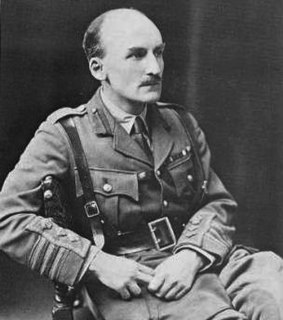Top 16 Quotes & Sayings by J. F. C. Fuller
Explore popular quotes and sayings by a British soldier J. F. C. Fuller.
Last updated on April 14, 2025.
Discipline is no longer literal obedience but intelligent obedience, for discipline aims at obedience coupled with activity of will. Once discipline weakens and vanishes, as it does towards the latter stages of the fire fight, and the crowd instinct possesses the soldier, then will he, if training has formed those necessary mental reflexes, surrender himself to the will of his leader; this is where leadership supplants discipline without destroying it.
Jackson possessed the brutality essential in war; Lee did not. He could clasp the hand of a wounded enemy, whilst Jackson ground his teeth and murmured, 'No quarter to the violators of our homes and firesides', and when someone deplored the necessity of destroying so many brave men, he exclaimed: 'No, shoot them all, I do not wish them to be brave.'
The War of the Roses in England and the Civil War in America were both intestinal conflicts arising out of similar ideas. In the first the clash was between feudalism and the new economic order; in the second, between an agricultural society and a new industrial one. Both led to similar ends; the first to the founding of the English nation, and the second to the founding of the American. Both were strangely interlinked; for it was men of the old military and not of the new economic mind - men, such as Sir Humphrey Gilbert and Sir Walter Raleigh - who founded the English colonies in America.





















